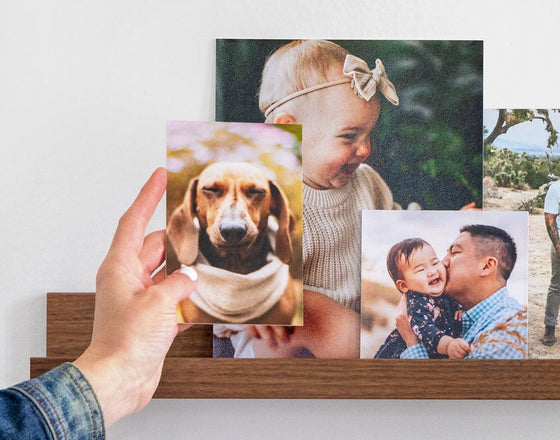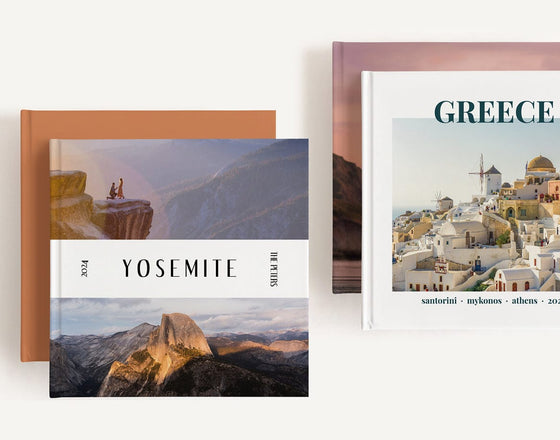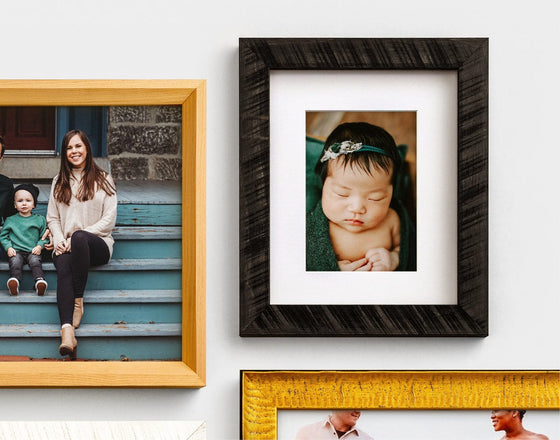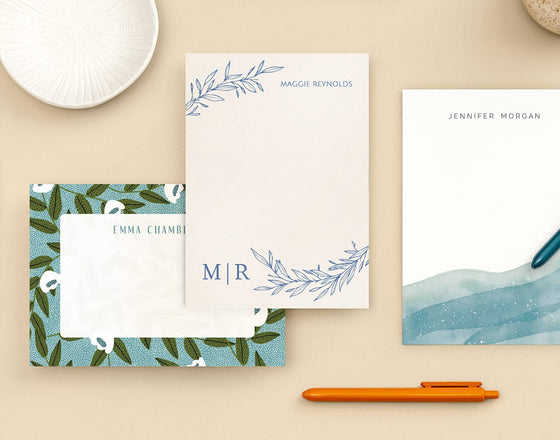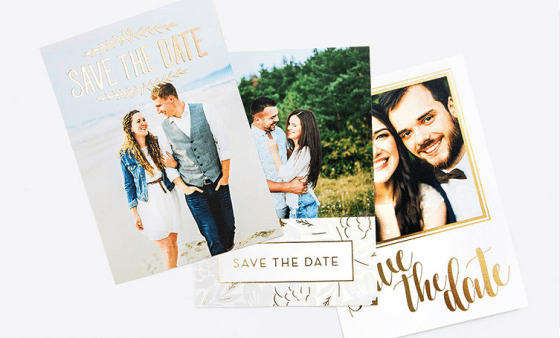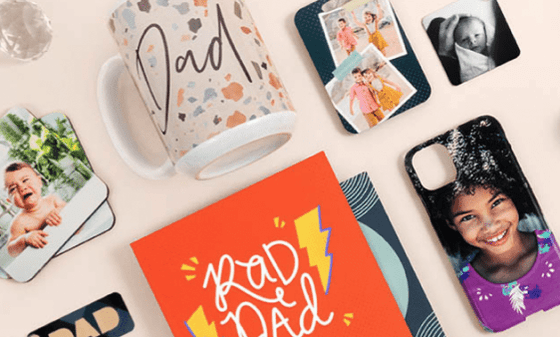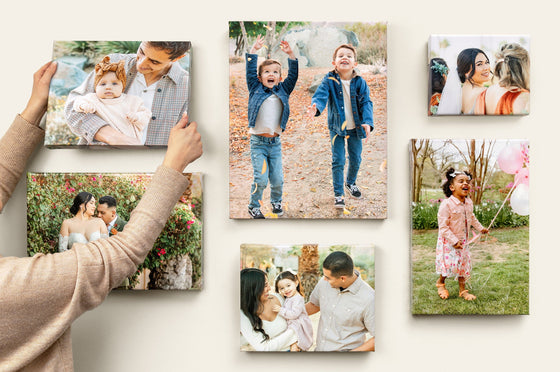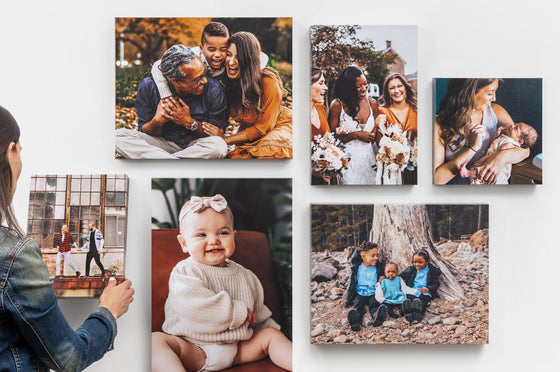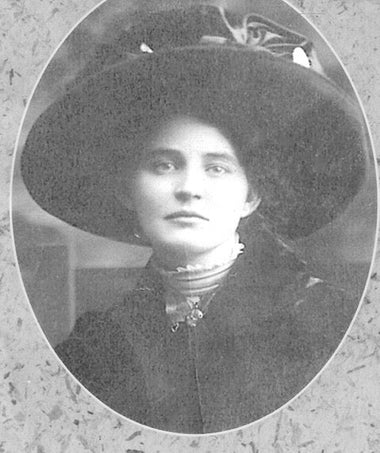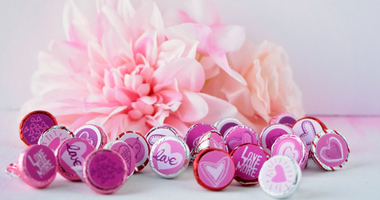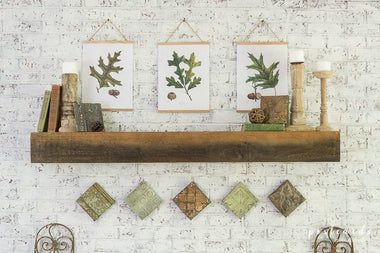Guest post by Lady Lauren Stitching
You’ve probably heard of embroidery — if not from your grandma maybe during the crafting boom of 2020. But have you heard of embroidery on printed photographs? Here’s a quick intro to the art form and 5 tips for getting started with photo embroidery from artist Lady Lauren Stitching!



What is photo embroidery?
It's more simple than you might think! Embroidery is the art of using a needle and thread to create patterns, typically on fabric. But you don’t have to be limited to stitching only on fabric! The same (or slightly modified) stitching techniques can also be used when adding thread to printed photos. For example: blackwork embroidery, thread painting, satin stitch, French knots, and bullion knots. I’ve yet to meet an embroidery stitch that can’t be made to work on photos.




Embroidery is a great way to add even more magic to your favorite photos! These embellished prints make wonderful personalized gifts and are good conversation starters in your own home or office. Here’s some tips for getting started:
Tip 1: Printing your photos
Printed photos hold up surprisingly well to embroidery! You don’t need to add any special backing to the photo or order embroidery-specific prints. That being said, there are some types of photo prints that work better for embroidery than others.
First, I highly recommend using a professional printer rather than an at-home photo printer as professional photo prints tend to be much more durable. You’re going to be handling your print quite a bit and photos printed at home can smudge rather easily.
Second, pick a lustre or matte finish over a glossy finish. The surface of glossy photos are much more likely to get scratched, show fingerprints, or wrinkle than the surface of a luster photo. And when you’re working with a needle, we don’t want any stray scratches showing up!
Third, 1-hour photos work just fine for embroidery (especially if you’re in a time crunch!), but higher quality prints are going to be a bit easier to work with and will be much more durable! I have been using Nations Photo Lab for a long time and their quality cannot be beat! Their Lustre Prints are my all-time favorite to embroider. They are durable, not too thin (or thick!), have great subtle texture, and look beautiful!



Tip 2: Knowing what to embroider
Once you’ve picked your photo and ordered a print, how do you know what to embroider? An easy place to start is with a beginner template. I offer several printable DIY templates for photo embroidery that you can check out in my Etsy shop [link to embed: LadyLaurenStitching.Etsy.com]. Beginner favorites are the geometric blackwork crystal or sunflower designs, or my starburst designs!



You can also create your own designs! I recommend drawing out your design on vellum or acetate so you can see how it will look laid over your photo. Think about adding texture to the background or highlighting the photo’s subject in some way! Keep in mind that the closer together your stitches are, the more difficult the embroidery will be.
Beginner friendly stitches/techniques on paper include straight stitch, satin stitch, backstitch, whipped back stitch, cross stitch, and woven wheel roses.



Intermediate stitches/techniques on paper include French knots, chain stitch, split stitch, and stem stitch.

Advanced stitches/techniques on paper include bullion knots and thread painting.


Tip 3: Pre-punch holes in your photo
Now that you’ve got your photo printed and your design planned, how do you actually embroider the photo? First, you’ll pre-punch holes into your photo. I recommend using a fine-tipped awl or other similar tool, but your embroidery needle and a thimble will also do the trick!
First, use small rolls of tape on the back of your photo to secure it to a piece of corrugated cardboard (this cardboard will protect your table when you’re punching holes). Then place your printed or hand drawn template over the top of your photo, taping down the edges so the template doesn’t shift during prep. Next, press the tip of your hole-punching tool through the template, through your photo, and into your corrugated cardboard. Repeat everywhere you want your thread to go through your photo. Take your time here! Your design may have many holes and your hands may fatigue from punching them. It's totally ok to take a break!


Tip 4: Working with thread
The three types of embroidery thread I’ll mention here are stranded cotton, classic metallic threads, and Sulky metallic threads.
Stranded cotton is what you probably picture when you think of embroidery thread. Also referred to as embroidery floss, this thread is generally made up of six individual strands that can be used together as one thicker thread or separated and used individually. I love to use cotton thread for French knots and thread painting! These threads are available at nearly every craft store and online in a wide range of colors.


Classic metallic threads are fiber thread with some added sparkle! Typically more difficult to work with than standard cotton thread, metallic thread takes some practice! Be sure to use short lengths of thread while stitching to help avoid knots. There are many different brands and varieties of metallic thread, and I recommend DMC’s Diamant line for metallic thread beginners. I love to use it for my geometric designs as well as for French knots (but that’s a bit more advanced!).



Sulky metallic threads are more of a plastic filament than a fiber. They are flat rather than round and don’t fray the way standard threads do! These are some of my favorite threads for my geometric designs, but since they are so fine they’re not the best for making French knots. Find these online or in the sewing section of many craft stores!


To get started with the actual embroidery on your photo, tape the end of the thread furthest from your threaded needle to the back of your photo. Alternatively, you could tie a knot in your thread big enough so that it won’t pull through your photo. Then embroider through your photo, using the holes you pre-punched, to create your design.
Tip 5: Displaying your embroidered photos
Once you’ve embroidered your photo, you should show it off! The great news is that you can frame your embroidered photos just like you would any photo, you just need to pick the right frame.
Photos that have a lot of added texture or height (like thread painting, French knots, or bullion knots) will frame best with a mat. This will allow for more space between the photo and the frame’s glass so your stitches won’t get smashed.
Photos with thinner thread layers can be framed in any type of frame! And the great news is that the sparkle and shine of metallic thread and the texture of cotton thread still show up great through the glass. If you’d rather not have a glare off the frame’s glass, you can always remove the glass from the front of your frame to maximize the visibility of your embroidery!
Enjoy!
I hope you love photo embroidery! And I would love to see what you create! You can find me on social media as @LadyLaurenStitching.



